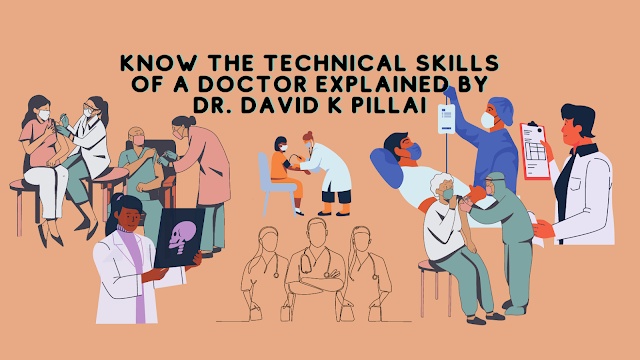As a potential future doctor, you might be wondering what skills you must learn in medical college. Over four years of medical college, you will acquire rigorous academic knowledge and build upon your skillset through clinical education. The combination of hard skills and soft skills along with your unique personality will ultimately determine your career success.
Medical education is a long and arduous journey that tests you in ways you couldn't imagine before entering the classroom. It is no secret that competition is fierce and that a lot is riding on your ability to learn the information presented during classes and lectures.
Under the leadership of David Pillai, Kings International Medical Academy provides top-quality FMGE and NEET coaching for India. Kings International Medical Academy in association with Davao Medical School Foundation also enables deserving candidates to pursue MBBS in the Philippines at a surprisingly low cost. Being in the field of medical education for the past 22 years, let’s hear from Dr Pillai about the technical skills of a successful doctor.
Doctors are highly regarded and trained medical professionals who specialize in a variety of fields. As such, the skills that doctors need for their careers can vary depending on their specialization. For instance, while a future gynecologist may spend more time learning how to diagnose illnesses often found in women, a future surgeon may focus on perfecting their scalpel incisions, and stitching techniques, says Dr. Pillai.
How to develop your technical skills as a doctor?
Technical skills are the main component of a doctor's daily routine. These skills form the basis of a physician's knowledge and the techniques that will allow them to perform their duties effectively and safely. As a doctor, you have to have certain technical skills to practice medicine. However, it's also important as far as your patients are concerned that you are an effective speaker and communicator. You need to be able to present a diagnosis and treatment plan so that your patient can understand what is wrong with them and what needs to be done.
According to David Pillai, a doctor should prioritize technical skills, including prescribing medication correctly, physically administering treatments, and interpreting laboratory results. These skills are essential to a doctor's practice, but the personal interactions between a doctor and their patient are just as important.
Prioritize learning
Never stop learning. The world of medicine is constantly changing, so you need to stay up to date on the latest developments in your field. A good way to do this is by continuing your education throughout your career. Some doctors earn graduate degrees in their field, while others take classes and seminars that focus on new technology or health care methods.
Research your field
Research the different aspects of your field outside of class time. Look at recent articles and studies to see how they apply to your work. If you have questions about something you read, ask a colleague who might have more experience with it. A medical professional needs to keep up with advances in medicine by studying new developments in their field. While this may seem like a lot of work, doctors who do not take the time to do this may miss important information about treatments that could benefit their patients.
Keep detailed records
Good record-keeping is an essential part of any medical practice. Having detailed records will help you remember what patients have come through your office, what treatments they've received, and their medical history before seeing you. This is especially important if you work with other doctors in the same hospital.
Conduct proper physical administration
A medical professional should also learn how to conduct physical exams on patients. Then, they can more easily diagnose and treat a patient's condition. A doctor can also find out more about the source of the problem by asking the patient questions during the examination.
Time management
Time management is a critical skill for doctors because they often see many patients in a single day, and each patient requires individualized attention and ample time for diagnosis and treatment. Doctors must be able to prioritize tasks efficiently so they can complete them before the end of the business day or shift. Poor time management can negatively impact patient care and create stress for doctors when trying to catch up.
Bottom Line
A doctor is a highly skilled professional who must have an in-depth understanding of the human body. Doctors must be able to diagnose and treat various illnesses and injuries, and they must possess the skills necessary to do so effectively. Any aspiring doctor should already have some of these skills, but it is important to continue developing them throughout medical education, says the leading educationist David Pillai .
